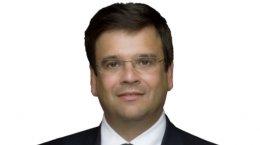Much of the financial world has been gripped for the past few weeks by gloom interspersed with bouts of sheer panic. Yet one close-knit cabal of investors, bankers and lawyers found plenty to toast at London’s opulent Claridge’s hotel last month.
The gathering was the charity fundraising dinner held annually for London’s venerable Norwood charity by investors in distressed debt. For those who thrive amid financial strife and hardship, “things are finally starting to heat upâ€, enthused one fund manager as he took his seat in the art deco ballroom. “There’s a tidal wave of opportunities coming now.â€
Over roast sea bass and feuillantine potatoes, complemented by Château Mayne-Graves, Bobby Sager, the colourful former president of liquidator Gordon Brothers turned travelling philanthropist, regaled guests with tales of his good work in “messed-up placesâ€. For many distressed debt investors, Europe may be starting to resemble one of Mr Sager’s charity cases.
The crisis on the continent’s periphery, and simmering fears over the strength of the global recovery, culminated in market convulsions in the past few months. Eurozone policymakers recently thrashed out another rescue package but, even before this week’s renewed anxieties over Greece, distressed debt investors were scenting blood.
The sector, sometimes maligned as a flock of “vultures†by aggrieved politicians and owners of target companies, seeks to take advantage of stressed and dislocated financial markets. It typically comprises hedge funds or private equity firms that acquire at a discount fundamentally sound or defaulted loans, bonds or entire portfolios of debt from banks and other investors under duress, and attempt to squeeze out a profit. Alternatively, they may try to seize control of struggling companies by buying their loans and bonds, and converting this debt into equity ownership – a strategy known as “loan to ownâ€.
So is the opprobrium sometimes heaped on these funds deserved, or could they play an integral part in a much needed deleveraging process in Europe, rebuilding companies pummelled by the economic downturn and even saving some from extinction?
Professor Edward Altman at New York University’s Stern School of Business attributes some of the hostility towards the sector to anecdotes of “unseemly profits made out of distressed situations in past recessionsâ€. However, he is adamant that they play a positive role. “These funds don’t pick at the carcasses of companies that have died, but try to bring them back to life,†he says. “While they’re all about their returns, and sometimes jobs are lost, they provide valuable liquidity when others won’t.â€
Nonetheless, European companies could be in for a jarring experience if they hit the skids and are forced to deal with distressed debt investors rather than their banks. They “may be shocked when they are confronted with a more US-style, distressed fund-dominated restructuring process,†predicts Marcia Goldstein, head of restructuring practice at Weil, Gotshal & Manges, a global law firm.
The stars are now aligning for the sector. European companies have to repay more than $4,000bn of loans and bonds in the next four years, according to credit rating agency Standard & Poor’s – a formidable sum at a time when the continent faces unprecedented pressure. Most are expected to manage to repay or roll over these debts, but some are expected to founder and could be taken over by distressed debt investors.
Matthew Prest, head of restructuring at New York-based Moelis, an advisory bank, says the first half of the year was relatively quiet, but “we’ve seen a marked increase in calls in recent weeks. The markets are shut for weaker companies – and that is a problem for a lot of them.â€
Europe’s banks, normally a ready source of funding for many of these companies, are themselves struggling. Indeed, faced with the threat of sovereign debt restructurings, expensive funding and higher capital requirements, many plan to shrink their balance sheets. Estimates on the scale of potential asset sales vary. Banks in France, the UK, Ireland, Germany and Spain have unveiled plans to slash a total of €775bn ($1,065bn) of assets, according to data collected by Bloomberg. Leon Black of Apollo Global Management, a leading investor in distressed debt, recently estimated this sum could increase to €1,500bn in coming years.
That could prompt a region-wide credit crunch for companies and consumers, but will provide investors with opportunities to cherry-pick assets, financiers say. Many are eyeing Ireland, where loans and property worth a nominal €72bn have been taken over by the National Asset Management Agency, a state-run “bad bankâ€, and will gradually be sold off.
Across Europe, investors are eyeing companies owned by private equity firms that lumbered their acquisitions with large debt packages. Private equity firms’ “special situations†funds, as they are often known, stay away from companies owned by their parent but consider others fair game.
Europe’s turmoil has attracted big-name US firms in the past two years. Some, such as Baupost and Centerbridge, have set up offices in London for the first time. Others including Oaktree Capital, Carlyle, Cerberus, KKR and Apollo are ramping up their European operations.
Those with a long-standing presence are deeply embroiled in the market. Strategic Value Partners, for example, has invested $1bn in European distressed debt this year, and is set to become a big shareholder in Pfleiderer, a German manufacturing company floored by the financial crisis. “There are a bunch of these restructurings already going on in Europe, and there will be more,†predicts Victor Khosla, SVP founder. “Six months ago these companies might have been able to access [bond] markets but they missed the boat.â€
Distressed debt funds either based in or focused on Europe have raised a record $7.4bn from investors since the start of 2010, according to Preqin, a data provider. Well over a dozen other funds are trying to raise a further $9bn. “My inbox is just getting bombarded,†says Luke Ellis of asset manager Man Group’s fund of hedge funds division. “There have been more funds launched in the last six weeks that are about European distressed [investment] than all other funds put together by a big factor.â€
Most investment banks are rebuilding or beefing up distressed debt desks, expecting the sector to provide a rich vein of lucrative business in the coming years. “Activity has been fairly limited thus far, but we’re expecting it to pick up considerably by year-end, and even more through next year,†says Nicholas Kyprios of Credit Suisse, which has ramped up its trading desk linked to the sector. “The banks have to date been somewhat reluctant to sell, but they’re running out of options and time.â€
Not all are convinced Europe will prove a goldmine, however. Some argue it is simply too soon to make big bets. WL Ross & Co, the US-based distressed debt investor and turnround specialist, recently became a big shareholder in Bank of Ireland, but Wilbur Ross, its billionaire founder, says Europe’s harsh economic outlook means there might yet be better bargains to be had. “You can get really hurt if you go in too early,†he says.
Others say some countries will never be fertile ground. With the exception of Ireland, stricken states on the eurozone’s periphery – where opportunities should in theory be the most abundant – have poor insolvency and restructuring regimes. Coupled with legal and political difficulties in shedding workers, this makes most of southern Europe unattractive.
Investors are particularly wary of Greece given uncertainty surrounding its future in the eurozone. The only significant deal to date is last year’s takeover of Wind Hellas, the country’s third largest mobile phone company, by its bondholders, including US-based distressed debt funds Mount Kellett Capital, Anchorage Advisors and Angelo, Gordon & Co.
Even in countries with better restructuring regimes and more solid economic fundamentals, the sight of aggressive, predominantly US “vulture funds†taking over businesses and promptly slashing jobs could arouse political hostility. Europe “can get nationalistic very fastâ€, says one senior distressed debt executive. “There’s often human misery involved in these situations, so we always have to go in and be constructive,†says Nat Zilkha of KKR Asset Management’s $1.9bn distressed debt fund.
Most of all, some industry insiders believe Europe’s banks will prove reluctant to shed the assets they have put up for sale. At a time when many lenders are loath to take further hits to their precious capital, few have marked down the value of their loan books to anywhere near the prices investors are offering.
Maybe this time is different and Europe will turn out to be a huge opportunity, but the culture is so different,†says Mr Prest, of Moelis & Co. “Lenders just don’t cut their losses as quickly as they do in the US. There’s always talk of banks disgorging assets, but unless there’s a severe liquidity crisis it’s not going to materialise to the extent that some hope.â€
Gavin Colquhoun of Deutsche Bank predicts that any asset sales will be sluggish, and will start in earnest only once the economic backdrop has steadied. “There’s no silver bullet that will cause deleveraging; we will need a couple of years of economic stability and job growth for losses to be provisioned for and for assets to slowly leak out,†he says.
Despite the challenges, the funds are adamant that Europe will offer tremendous investment opportunities in coming years – and are prepared to wait for what they see as a slow but inevitable deluge of company restructurings and banking asset sales. “We’re just in the first innings,†says the European head of a major US firm. “We have already bought quite a bit already, and the market is going to be huge over the next few years.â€
This may well cause concern in some quarters but industry insiders say the sector is a force for good. While private equity firms frequently pile debt on to their acquisitions, distressed debt funds typically slash the debt burden of their companies and help banks get rid of unwanted assets or cash in on better ones.
“It’s politically easy to attack these funds, but inaccurate,†argues Joseph Swanson of Houlihan Lokey, a restructuring-focused Los Angeles investment bank. “These funds provide liquidity when others won’t, and fix broken companies.â€
Additional reporting by Henny Sender, Kerin Hope, James Mackintosh and Richard Milne
More News From Financial Times





